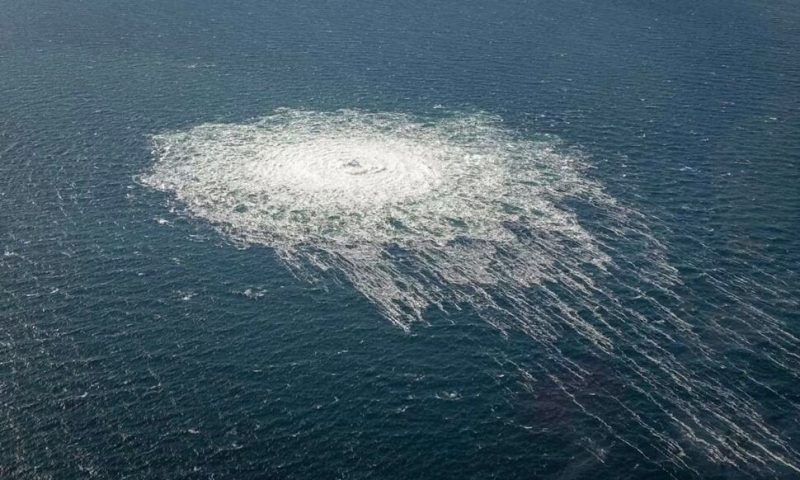The disastrous leaks in the Nord Stream 1 and 2 energy pipelines from an apparent act of sabotage have sparked new fears that Putin is expanding the battlefield in Europe.
Russia shrugged off Western accusations of its complicity in mysterious explosions at the Nord Stream pipelines in Europe this week by calling for an urgent U.N. Security Council meeting to address what it called an act of “sabotage.”
“Russia has requested an urgent meeting of the UN Security Council in connection with sabotage against two lines of the Nord Stream. We expect it to be held tomorrow,” Dmitry Polyanskiy, one of Russia’s top representatives at the U.N., wrote on his Telegram channel, according to a translation.
Shortly after issuing the statement early Wednesday, the French delegation to the U.N. confirmed to him that a meeting would indeed take place on Friday – a tacit acknowledgement of the panic that the explosions and subsequent leaks have caused.
Russian officials appeared eager to capitalize on the fears stemming from the explosions, which have already had an effect on leading European economies. Their actions come at a time the U.S. and its partners fear Moscow is opening up the front lines of its war on Ukraine to outside the former Soviet state as its own campaign suffers from disastrous and embarrassing setbacks.
Though Western officials have so far withheld blaming Russia directly, some have hinted at complicity from Moscow, following months of concerns about Putin’s willingness to use the pipelines as an alternative form of warfare against Ukraine’s benefactors as Europe faces an oncoming cold winter.
“These apparent explosions near Nord Stream just highlights again that we have moved from a situation of relative stability in the war in Ukraine back into a period of high escalation risks,” Emma Ashford, a senior fellow with the Stimson Center think tank, tweeted.
Europe – and by extension, the world – was already facing an energy crisis as a result of Russian President Vladimir Putin’s decision to invade Ukraine seven months ago. Economic powers there had since sought new avenues for energy, perhaps imports from the U.S., as a way to wean off the decades-long process of integrating its markets with Russia’s.
The mysterious gas leaks this week have already caused widespread panic, with Danish officials earlier on Wednesday acknowledging that the eruptions from the pipelines – known as Nord Stream I and Nord Stream II – could alone release the equivalent of one-third of its annual greenhouse emissions. Denmark’s prime minister joined several other European leaders late Tuesday to condemn the crisis as the result of “deliberate actions.”
Moscow has suggested U.S. or Ukrainian officials are responsible as a part of its broader narrative that the Biden administration in its support for Kyiv seeks only to bolster its own ability to sell to European countries exports of liquid national gas, known as LNG.
Secretary of State Antony Blinken when asked about the apparent sabotage late Tuesday declined to blame Russia directly, citing the ongoing investigation, but emphasized the administration’s efforts to ease Europe’s transition away from reliance on Russian fuel.
“It’s worth noting that our own oil production is up by more than 500,000 barrels per day this year,” Blinken told reporters at a press conference alongside his visiting Indian counterpart. “Our LNG exports are up more than 20 percent since last year. In fact, we became the largest LNG supplier to the European Union and the U.K. this year, and we’ve become the largest overall LNG exporter this year. And of course, as you know, we’ve been tapping into the Strategic Petroleum Reserve at unprecedented levels. Others are doing the same. This is having an impact both on supply and on price.”
Russia has previously weaponized its pipelines to exert pressure on would-be partners of Ukraine to reconsider new forms of military support.
The German government has faced criticism for years for its endorsement of the Nord Stream II pipeline from Russia through the Baltics and to Germany. It strategically bypasses Ukraine, which prior to Russia’s initial invasion in 2014 had served as a key hub for energy flows from the east into Europe.

